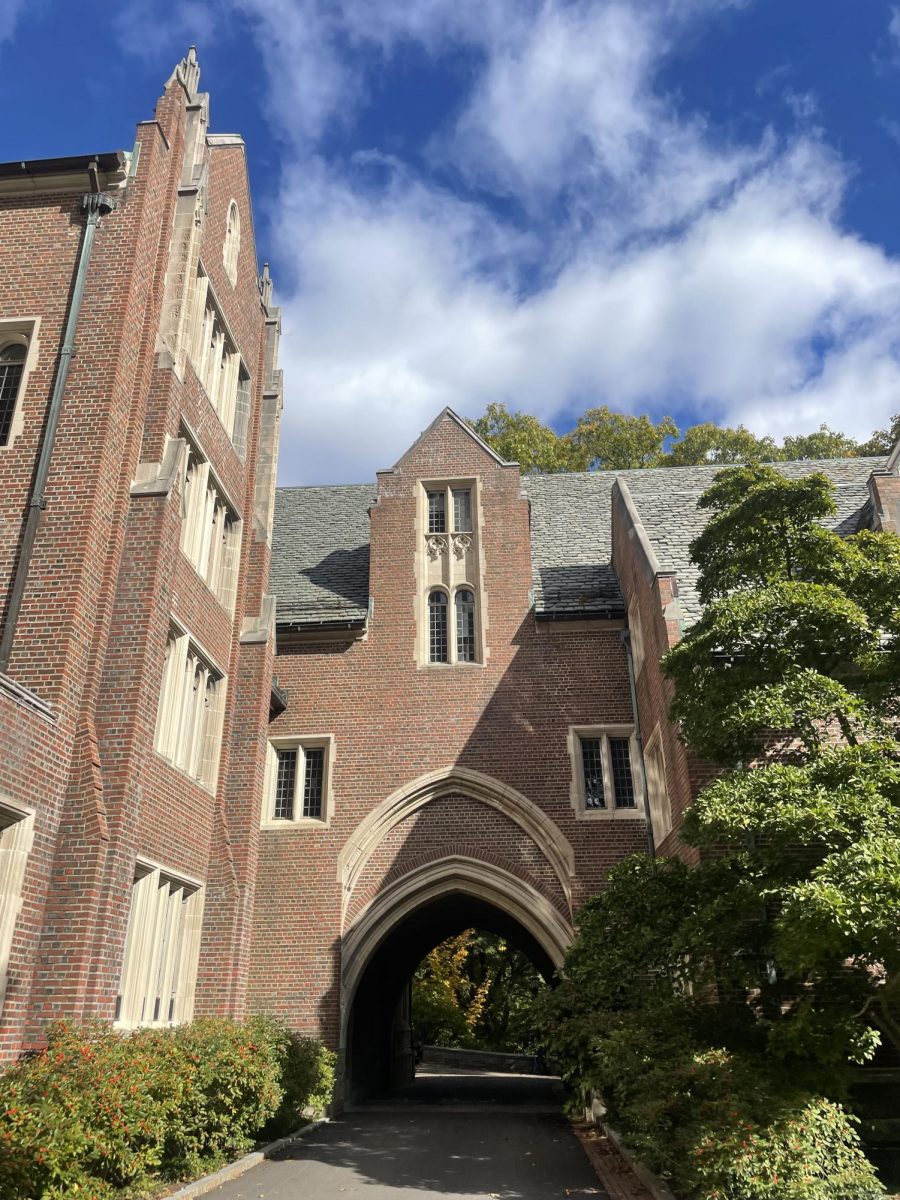Wellesley Political Science and Environmental Science Professor Beth DeSombre is a woman who approaches life from many perspectives. She’s a professor, a musician and now a writer and uses each of these three experiences to inform the others. On April 2, DeSombre published her second book, “Why Good People Do Bad Environmental Things,” which explores why the international community is not doing more to stop climate change through the lens of individual decision-making. DeSombre is also the author of the book “The Global Environment and World Politics,” which was published in 2007. This book is her first foray into publishing a non-academic book and is designed to make topics of environmental science more accessible to the general public.
To write her most recent book, DeSombre had to become proficient in several academic fields. “I had to learn a lot about a lot of other disciplines — psychology, sociology, economics — apart from my home field of political science,” DeSombre explained. “The whole point was to bring the studies and insights from these fields into conversation with each other, so I had to become broad enough in my own knowledge of these fields to be able to do that. On the other hand, that was a lot of fun.”
DeSombre drew much of her inspiration for her book from her experience living and working in Wellesley. Aside from teaching environmental science courses here, she has also watched the progress of student efforts: the formation of Enact, this year’s Year of Sustainability campaign and the more recent Renew Wellesley student activism project, which focuses on renewable energy use on campus.
In her classes, students say, DeSombre brings the same enthusiasm for real-world environmental solutions that she expresses in her book to the classroom. “Her research, teaching, music all inspire me, and most importantly I am very glad to have connected with her through many conversations outside of the classroom, and I am sure many others have and will too,” said Environmental Science major Yuxi Xia ‘20.
Ariana Carter ‘18, an environmental studies major, agreed. “She has high expectations of her students, and while I may complain about her brutal critique of my writing, it’s always advice that I needed in order to improve. I’ve learned from her to ask challenging questions and give clear, direct answers,” she said.
DeSombre was inspired and informed by her students’ work in environmental studies courses when writing her book. “One genesis of the book was the core social science course I teach within Environmental Science; a lot of the ideas in the book first came up in that course. I’ve also been inspired by watching environmental activists try to create change on campus by simply informing people of what the right thing to do is and get frustrated when those efforts fail. I wanted to give them, and others elsewhere in the world, the tools to understand what works and what doesn’t work to change environmental behavior — and why,” DeSombre explained.
While watching student activists attempt to improve the environmental behavior of others, DeSombre saw that appealing to people’s morals, or explaining what the harmful effects of their behavior are, does not tend to work. In her book, she explains this phenomenon extensively, saying that because environmentally-conscious choices tend to be more difficult and expensive than less environmentally beneficial ones, even well-intentioned people like Wellesley students tend to make choices that damage our environment. According to a press release by Wellesley College, “While activists often focus on raising awareness and concern about environmental problems, DeSombre argues that this approach is not an effective way to change environmental behavior… Instead of trying to persuade individuals to change their behavior through guilt or information overload, DeSombre says we should focus on changing current institutional incentives and social norms.” DeSombre further suggests that we need to make the environmentally-beneficial choices also economically beneficial ones. This goal could be accomplished through incentivizing behaviors like recycling or through making behaviors like driving cars more expensive.
“One of the big implications of what I found is that haranguing or guilting people into doing the right thing often doesn’t work and can even be counterproductive,” she stated. “Instead, we should be setting up systems and incentives so that doing the right thing environment[ally] is … easier and less costly than doing the wrong environmental thing.”
In terms of actions that Wellesley as a community might take to improve our environmental footprint, DeSombre suggested making the Wellesley Exchange Bus free for faculty to discourage driving to work, “while perhaps charging a nominal amount for parking.” Additionally, the community could “make it really easy to do things like recycle and much harder or more expensive to use disposable things,” she said.






